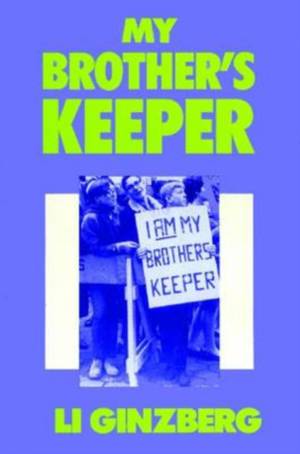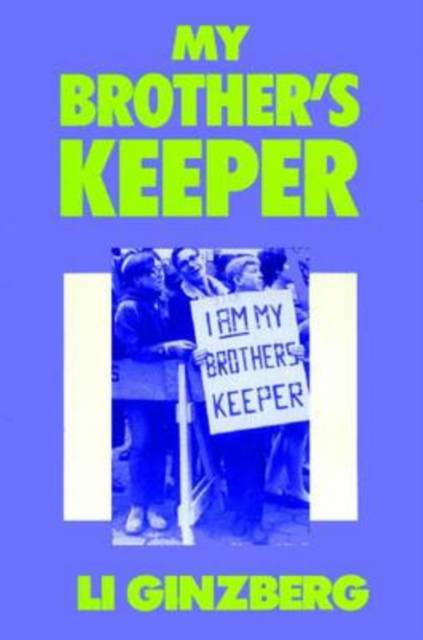
- Afhalen na 1 uur in een winkel met voorraad
- Gratis thuislevering in België vanaf € 30
- Ruim aanbod met 7 miljoen producten
- Afhalen na 1 uur in een winkel met voorraad
- Gratis thuislevering in België vanaf € 30
- Ruim aanbod met 7 miljoen producten
Zoeken
Omschrijving
This is a deeply personal memoir by the doyen of applied economics in the United States. His name is indelibly linked to the creation, expansion, and refinement of employment policy and human resource needs from 1935 to the present. Eli Ginzberg has been a longtime consultant to the federal government, including nine presidents. In this volume, the focus is on American Jewry in the present century from the perspective of an active participant observer and a critical social science based analyst.My Brother's Keeper deals with the changing position of American Jewry in the twentieth century. Ginzberg makes extensive use of his own experiences to review the changes that have taken place in urban life, university involvement, and government agencies. The work covers Jewish life from pre-Hitler Germany to the present, and discusses with intimate candor synagogue life. Drawing upon his unique vantage point, Ginzberg presents new material about many leaders and events that helped transform the role of American Jews in their relationship with other Americans and Israel. At a more conceptual level the author explores major new influences that have reshaped American Jewry, such as the rise of neo-orthodoxy, the substantial increase in Jewish day schools, the blossoming of Judaica studies in American universities, and the rise of women in leadership roles.This memoir makes use of the best social science evidence, and draws on the special experiences of the author in the world of a deeply religious family and tradition. It ranks as a major contribution to the small shelf of self-reflections by social scientists.
Specificaties
Betrokkenen
- Auteur(s):
- Uitgeverij:
Inhoud
- Aantal bladzijden:
- 196
- Taal:
- Engels
Eigenschappen
- Productcode (EAN):
- 9781412808620
- Verschijningsdatum:
- 1/12/2008
- Uitvoering:
- Paperback
- Formaat:
- Trade paperback (VS)
- Afmetingen:
- 152 mm x 229 mm
- Gewicht:
- 272 g

Alleen bij Standaard Boekhandel
+ 82 punten op je klantenkaart van Standaard Boekhandel
Beoordelingen
We publiceren alleen reviews die voldoen aan de voorwaarden voor reviews. Bekijk onze voorwaarden voor reviews.











